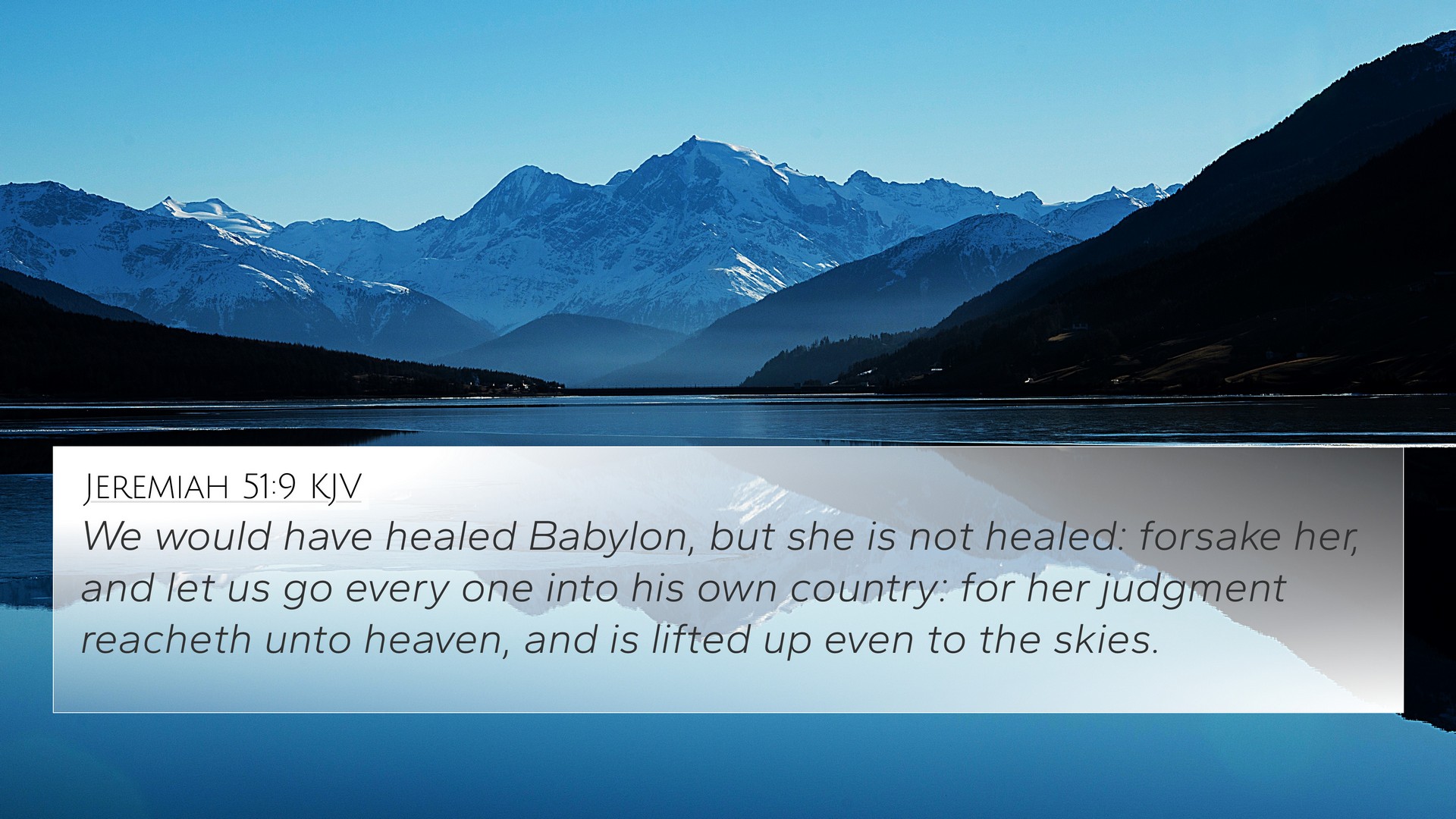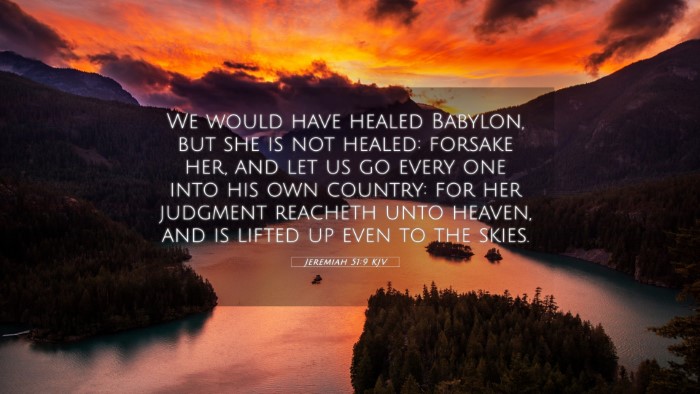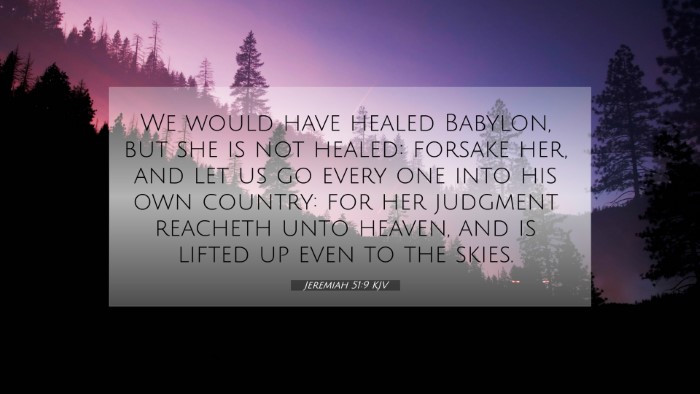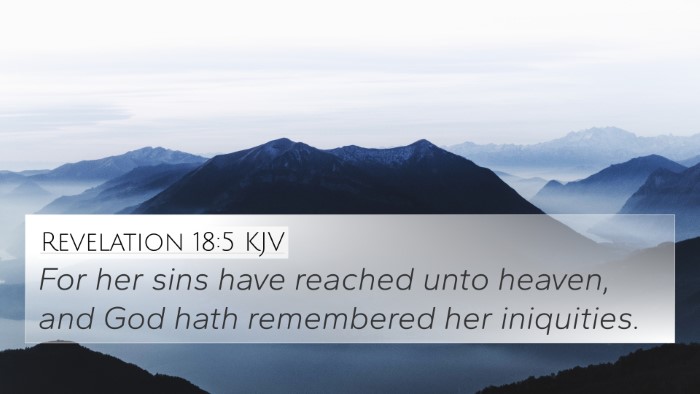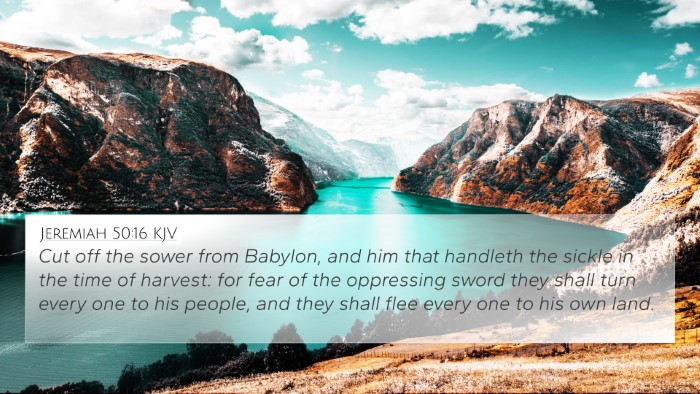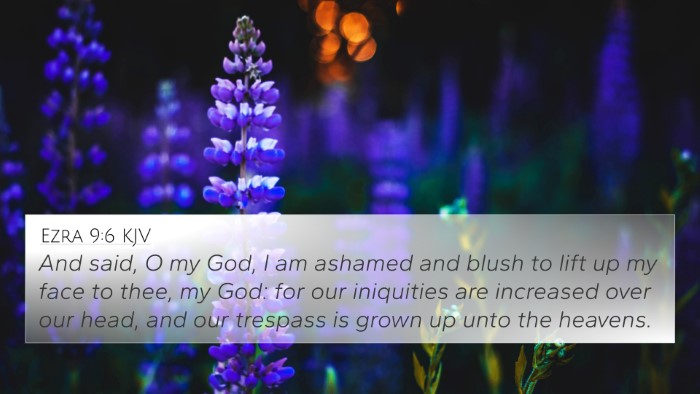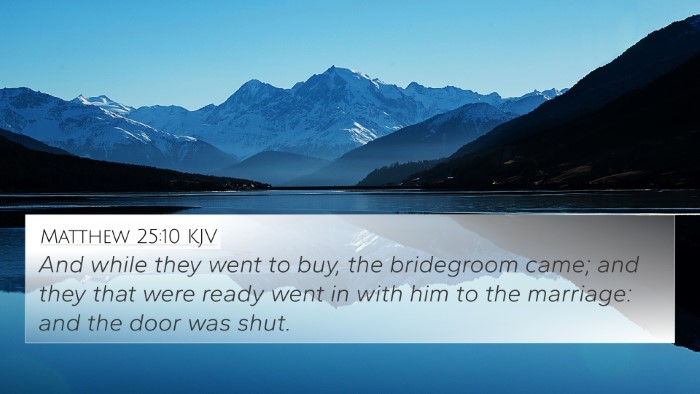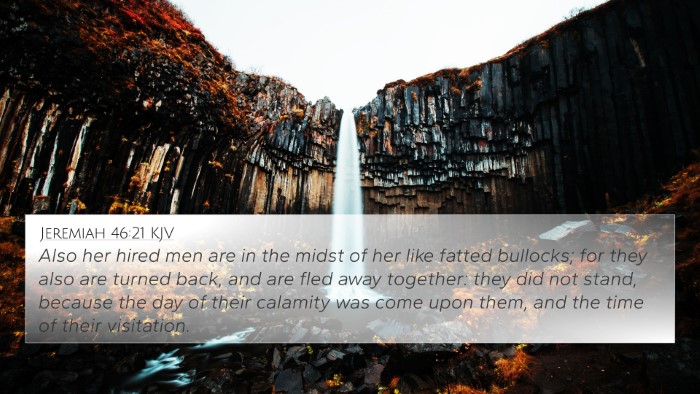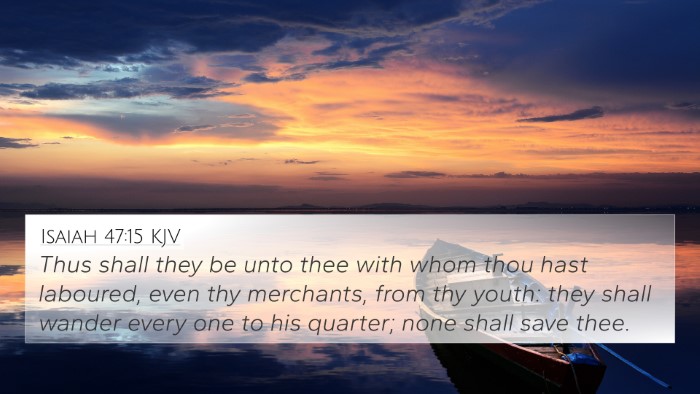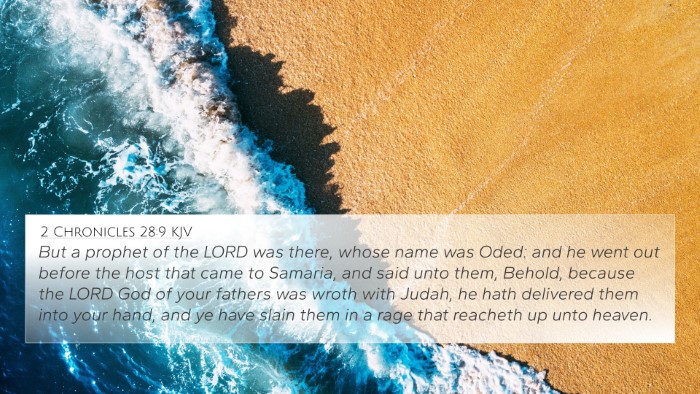Understanding Jeremiah 51:9
Jeremiah 51:9 states, "We would have healed Babylon, but she is not healed: forsake her, and let us go every one into his own country: for her judgment reaches unto heaven, and is lifted up even to the skies." This verse serves as a profound reflection on the demise of Babylon and offers insight into the divine judgment against it. The verse can be unpacked through various public domain commentaries, such as those from Matthew Henry, Albert Barnes, and Adam Clarke. Below, we explore the meanings and implications derived from these influential commentaries.
Meaning and Interpretation
General Overview: The overarching theme in this verse focuses on the hopelessness of Babylon's situation. Despite attempts for restoration and healing, the city finds itself under inevitable judgment, prompting a call for the people to abandon her. This exposes the reality of divine decree and the consequences of unrepentant sin.
-
Matthew Henry's Commentary:
Henry emphasizes that Babylon's inability to heal reflects a broader spiritual condition. He illustrates how God's judgments can be so severe that recovery becomes impossible. The enticing prospects of return to the homeland symbolize a call to repent and find refuge in obedience to God.
-
Albert Barnes' Notes:
Barnes highlights the futility of Babylon's former stature and the impending doom. His commentary drives home the idea that the people of Babylon, though called to repent and find restoration, must ultimately accept their fate as decreed by God. He interprets the 'judgment' mentioned as a warning to acknowledge God's sovereignty.
-
Adam Clarke’s Commentary:
Clarke provides a historical perspective, discussing the significance of Babylon as a powerful empire and its fall as a theological symbol. He mirrors the physical realities of the Babylonian exile with spiritual implications surrounding judgment, sin, and redemption, urging readers to recognize God’s power in history.
Cross-References and Thematic Connections
This verse is deeply interconnected with several other scriptures, enhancing understanding through cross-referencing. Below are relevant Bible verse parallels and their significance:
- Revelation 18:2: "And he cried mightily with a strong voice, saying, Babylon the great is fallen, is fallen, and is become the habitation of devils."
- Isaiah 13:19: "And Babylon, the glory of kingdoms, the beauty of the Chaldees' excellency, shall be as when God overthrew Sodom and Gomorrah."
- Jeremiah 50:13: "Because of the wrath of the LORD it shall not be inhabited, but it shall be wholly desolate."
- Ezekiel 26:19: "For thus says the Lord GOD; When I shall make thee a desolate city, like the cities that are not inhabited."
- Revelation 14:8: "And there followed another angel, saying, Babylon is fallen, is fallen, that great city, because she made all nations drink of the wine of the wrath of her fornication."
- Romans 11:22: "Behold therefore the goodness and severity of God: on them which fell, severity; but toward thee, goodness, if thou continue in his goodness: otherwise thou also shalt be cut off."
- Luke 21:24: "And they shall fall by the edge of the sword and shall be led away captive into all nations: and Jerusalem shall be trodden down of the Gentiles, until the times of the Gentiles be fulfilled."
How to Utilize Cross-Referencing Tools
Engaging with these cross-references enhances the exploration of Jeremiah 51:9. Employing tools for Bible cross-referencing like concordances or online study resources can deepen understanding and reveal connections between Scripture. Below are practical methods on how to effectively utilize these resources:
- Use a Bible Concordance to locate terms and find related verses that echo themes of judgment and restoration.
- Implement a Cross-Reference Bible Study by identifying keywords from Jeremiah 51:9 and tracing them through other Scriptures.
- Engage in Bible Cross-Reference Guides to compare parallel verses across the Old and New Testaments.
- Practice Cross-Referencing Bible Study Methods by observing how themes of restoration manifest in different contexts.
Conclusion
Jeremiah 51:9 serves not only as a historical proclamation about Babylon but also as a timeless message about divine justice and the necessity of repentance. By studying this verse in conjunction with others, one can better appreciate the narrative of judgment throughout the Bible while enriching one’s understanding of God’s dealings with nations and individuals. The connections drawn through cross-referencing facilitate a more comprehensive view of scriptural truths that resonate across various contexts and eras.
